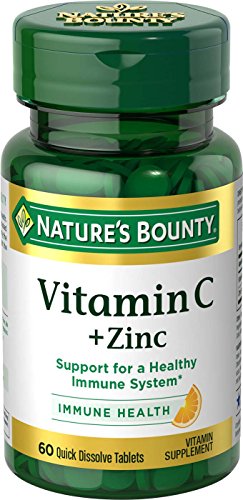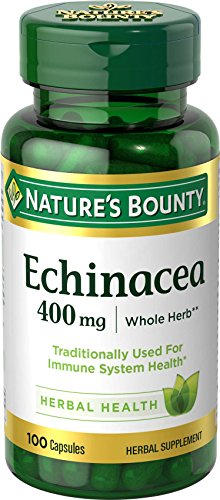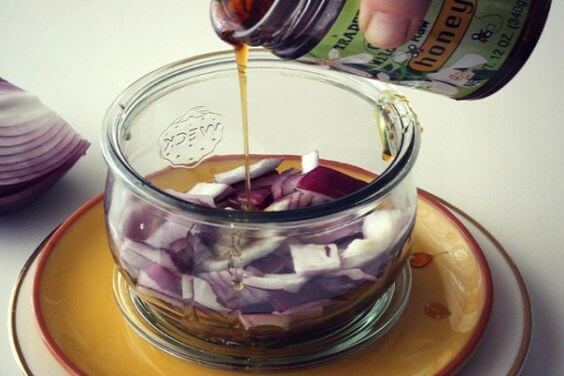Getting a cold sucks. Stuffed up nose, sluggish brain, gross feels, aching body, tired all the time, and absolutely nothing you can do about it. As a virus, the common cold cannot be touched by antibiotics or anything else a doctor might prescribe. The only thing for a cold is to suck it up and wait it out, right? Wrong. While we haven’t invented a pill to magic the common cold away, we do have some home-style tips and tricks on how to get rid of a cold—or reduce those nasty symptoms.
Ditch the sniffles and stop feeling so sluggish. Find out what the experts say about how to get rid of a cold.
Vitamin C + Zinc

Nurse practitioner at the Colorado College Boettcher Student Health Center Catherine Parris recommends taking zinc and vitamin C to reduce the longevity of a cold, as long as you catch the symptoms quick! “Within three days of getting the cold and starting to feel symptoms, take effervescent zinc and vitamin C tablets twice a day,” said Parris. “They can reduce cold duration by 19 hours and work just as well as Tamaflu. Don’t wait. After three days the cold virus has already replicated itself and by then you won’t be able to do anything about it.” Parris also recommends elderberry extract twice day—two teaspoons dissolved in water.
Echinacea

Echinacea plant extract also counts as a fantastic preventative measure. Lydia Ballantine, Colorado College senior, grew up taking a tincture her mom made from vodka infused with strong Echinacea extract. “My family and I would take Echinacea immediately whenever any of us would complain about a tickly throat or a stuffy nose,” said Ballantine. If the vodka infusion doesn’t appeal to you, you can also buy bottled-Echinacea extract at most health food stores. A few drops in a glass of water daily can help to keep a cold at bay.
Rest

Take care of yourself! The common cold may be frustratingly lingering, and we all know it’s not life threatening (victims of the man-flu, I’m looking at you), but not letting your body rest is only asking the cold to stick around. At Colorado College Boettcher Student Health Center, Nurse Britanny sends students with a cold straight to bed. “Get lots of rest,” she explained. “Also, make sure you hydrate as your body loses lots of fluids when it’s ill. Avoid coughing in your hands because that spreads germs both to other people and on your own possessions, so you will stay in contact with the virus for longer.” On a similar note, make sure to open as many windows in your house as possible to encourage clean airflow. Try taking a warm bath to let your body relax.
Red Onion Syrup

It might sound strange, but Dr. B. Giergowicz, who practices in Warsaw, Poland, swears by red onion syrup. “It will help relieve heavy coughing,” explained Giergowicz. “You make the syrup by boiling red onions in water. When the onions are soft push the flesh through a sieve so that you have a thick syrup. Drink this syrup to help with the cough.” Onions are naturally anti-viral, anti-bacterial, anti-fungal, way cheaper than over the counter cough medicine. Plus, they may be more effective. The red onion taste is less potent than if you use white onions, and feel free to use honey to mask the onion taste.
Garlic

Growing up in Poland, Grzegorz Giergowicz always learned to drink milk with garlic to help his body fight a cold. “Crush the garlic and mix it into a glass of milk or anything else that will mask the taste,” Giergowicz advised. “The garlic doesn’t taste good but it’s full of goodness. Mixing it into a drink makes it much easier to stomach than just eating a chunk of garlic.” Another Polish classic cold remedy? Hot tea with lemon and concentrated raspberry juice. While the specific raspberry juice that Poles love is hard to find outside the United States, hot lemon tea sweetened with honey or agave is just as soothing, with the added bonus of tons of vitamin C from the lemon juice.
Ginger and Spice

Tea with ginger is a great addition to tea with lemon—you can even chuck the two in together. Be sure to use fresh ginger, which is much more effective than ginger-flavored tea. Peel and chop the ginger into thin slices before pouring over hot water. Leave to steep for five minutes and your tea is ready. In general, working any kind of spice into your culinary options while suffering from a cold is a great way to blast through your nasal passageways clogged with mucus. Try cayenne pepper, paprika or even just good old Sriracha and Tabasco. You might find yourself sniffling into your soup, but it’ll be worth it afterwards.
Tiger Balm

If you can’t stomach the spice, try tiger balm. Common across Asia and originating from Myanmar, Tiger Balm is a potent blend of active ingredients including camphor, menthol, cajaput oil, mint oil and clove oil. “Growing up in Malaysia, my parents would rub Tiger Balm under my nose or on my chest when I had a cold,” said Colorado College senior Nicole Tan. “It really helps clear your nasal passageways when you are feeling blocked up from a cold.” Be careful to avoid the eyes, mouth and any cuts or scrapes. Tiger Balm is strong, and it will irritate! If Tiger Balm is nowhere to be found, Olbas Oil works in a similar way.



















